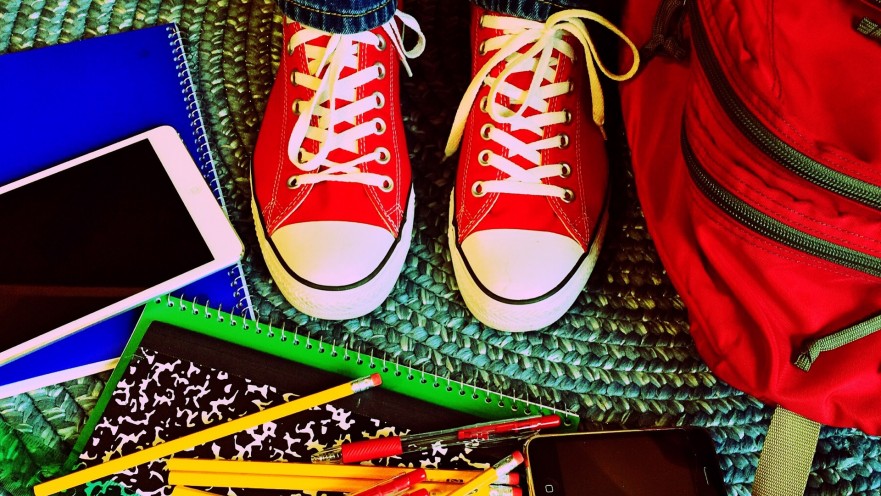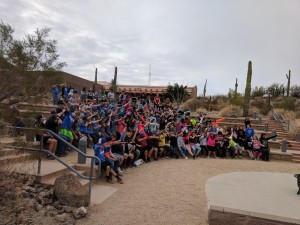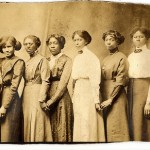The question I had been waiting for… “So, Mrs. Maloney, where are you in terms of the pacing guide?” I knew that it would come during one of our “data chats” in which teachers check in with our administration team after each round of benchmark testing. Each teacher on the team is required to share what they discovered in our data dig and what our next steps are.
I was slightly anxious because I was several weeks behind the district pacing guide and my classes’ first benchmark data showed it. But I also knew why. I spent the beginning of the school year learning about my students, or as Dr. William Ayers stated, “becoming a student of my students first.”
It is important to know who these little people are before the real work can begin.
I spend a lot of our first weeks and even months of the school year studying my new students. I use multiple intelligences, learning styles and “getting to know you” surveys and inventories. I get to know them deeper through their early writing, particularly narrative writing, journaling, and heart maps. “I wish my teacher knew…” sentence statements can be the most revealing writing activity of the year. I even have their parents write me letters as their child’s first advocate.
Reading conferences are critical as I learn who my students are as readers. But nothing compares to plenty of good old-fashioned conversations. I’ve learned to really listen to my students – to “listen with my eyes” as a school counselor once taught me. Listening with your eyes means reading body language and non-verbal cues. Simple observation will tell you who plays together, who borrows food, and who struggles with transitions.
Seeing students outside of school is an interesting way to get to know them better. Many of my students are in my after-school theater program, so we spend two extra hours each day together, four times a week for six months. You’ve never truly bonded with a student until your legs are dangling over the catwalk, adjusting lights together at a dizzying height above the stage while scarfing down Swedish Fish an hour before showtime. But I also love to visit my students at their dance recitals, ball games and track meets. They never forget the times you popped in to cheer them on and will often bring it up years later.
While I understand the value and worth of data, not understanding the inner workings of our students is a barrier to learning. I need to know that K will slog through graphic novels that he doesn’t enjoy because his friends liked them, but will pour over a historical fiction book about baseball. I need to know that G’s historical oral reading scores are low not because she doesn’t read well (she does!) but because she is too painfully shy to read in front of a stranger. I need to know that D hates to choose her own partner and prefers me to assign them instead.
Studying my students doesn’t stop in October. We’ll get new students, new teachers will come to work with us, and issues will arise as my students grow and change. The bulk of the work happens early but it is truly a year-long effort.
The effort is not just for me to know my students, either, but also for them to know themselves and each other better. My students compile data folders all year that show how they begin to know themselves as learners. We do many teambuilding activities as a grade level all year including my favorite, our annual overnight field trip! Fifth grade is an especially critical point in a students’ development; they need to feel accepted and belonging in their school community as they enter the tough stage of middle school. We invest precious time in activities and lessons to promote social relations and belonging. It is truly a part of our culture on the fifth-grade team.
Raquel Rios said, “Teaching and learning is an act of truth and authenticity in relationships is required for it to work. It is ritualistic and ceremonial at times but it is also organic and improvised. It is a skill and also an art, it is a science and an act of faith” (p.5). Building relationships with students are all those things.
Seeing the question in her eyes, I assured my principal that I would gain time throughout the rest of the year by teaching my students through their strongest learning styles, interests and making connections with them and their learning. She nods with understanding and I sigh with relief, grateful that she understands the skill and the art, the science and the act of faith in learning about my students.










Comments 7
Thank you for sharing why relationships first will lead to greater learning and success for our students. It is wonderful that you have any administrator who understands your role teaching the whole child.
This blog has sparked some reflection in me about the struggle of building relationships as an elementary specialist. I struggle to know students’ first names, and it REALLY bothers me. I incorporate a name game activity with k and 1 every week, for ME to learn their names. Of course it also has a music objective too: steady beat, rhythm, good singing, high/low, fast/slow, loud/soft. HMMMMM, wonder where this will lead?
Love it, Susan! It is so hard as a special area to teacher to learn the name of EVERY STUDENT IN A SCHOOL! But so critical as you build deep relationships.
This is so powerful. Every administrator and leader should be able to take a step back and truly appreciate the relationship aspect of what teachers do. Without this there is very little authentic learning that will really happen. Yes, reading is important and learning how to do math in the real world is essential. But to be successful it is also critically important to know how you get along with others, how you as a student approach a problem and who you can go to when you need encouragement. Your first few months does that!
This is what makes YOU such a special admin, Austine. You get it!
I love seeing this beautiful admission that some teaching is organic and improvised. Sometimes over-obsession with planning is such a kill joy. Magic is spontaneous for a reason. Love it.
#spontaneousmagic